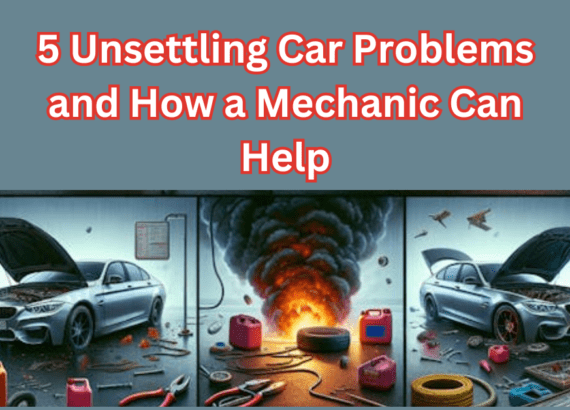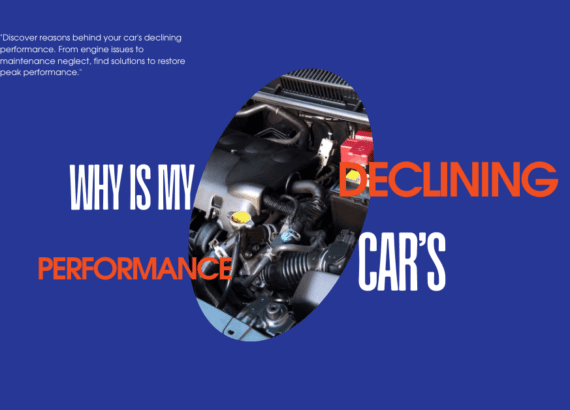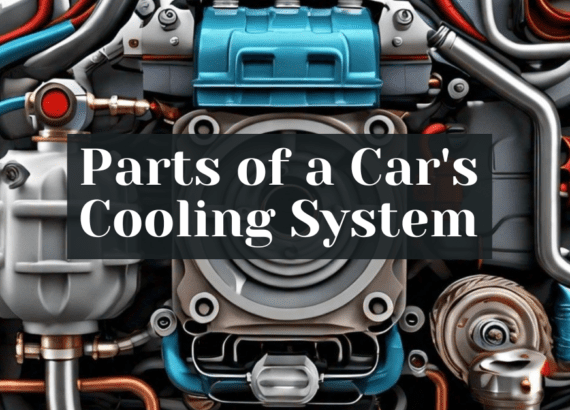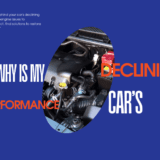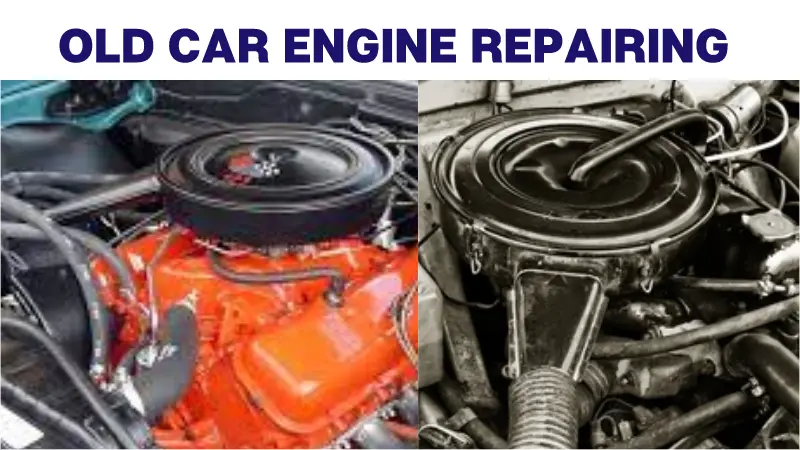How to Prevent Car Engine from the Rust, Tips and Tricks

Introduction
Engine is the main part of any vehicle including car, motorcycle, boat, or even heavy machinery. They are essential to the efficient operation of these equipment. Corrosion is one of the biggest risks to the health of engines, though. Reduced performance, higher fuel consumption, and even engine failure can be caused by corrosion. Reduced fuel efficiency, lower power output, and even engine failure can all be caused by corrosion. Protecting the engine from rust is a critical component of vehicle maintenance. Rust can seriously harm an engine, resulting in poor performance and expensive repairs and rebuilding of old car engines.
Understanding Engine Corrosion
Engine corrosion is the breakdown of metal engine parts brought on by a chemical reaction between the environment and metal surfaces. It can happen to cylinder heads, pistons, valves, and even the engine block, among other engine components. Moisture, chemicals, salt, and other pollutants in the air or engine operating conditions can all contribute to corrosion.
Common Causes of Engine Corrosion
Engine corrosion results from a variety of sources. You can more successfully implement preventive actions if you are aware of these causes. Typical causes include:
1. Moisture and Humidity
Corrosion is most likely to develop in environments with moisture and high humidity. Through a variety of ways, water vapor can enter the engine and cause rust and other corrosive materials to form.
2. Exposure to Salt and Chemicals
Engine corrosion is more likely to occur in vehicles driven in coastal or salt-populated locations. When they come into contact with metal surfaces, salt and some chemicals can hasten the corrosive process.
3. Lack of Maintenance
Corrosion may result from improper engine maintenance. Over time, accumulated dirt, debris, and pollutants can cause engine parts to degrade.
Rust and Its Effects on Engines
When metal is exposed to oxygen and moisture over time, rust develops as a result. Rust in an engine can affect a number of parts, including the cylinder walls, pistons, bearings, and valves, reducing performance and raising the possibility of engine failure.
Tips for Rust Prevention

1. Regular Cleaning and Maintenance
Rust is mostly avoidable with routine cleaning and maintenance. Make it a routine to periodically clean the engine bay, taking out any trash, debris, and corrosive materials.
2. Apply a Protective Coating
To completely clean all surfaces, gently scrape the surfaces with a soft brush and a degreaser. It is possible to provide another line of defense against rust by covering the engine surfaces with a protective coating. The market is filled with several engine enamels and rust-proofing sprays. Make sure the engine is clean and dry before putting on any coating.

3. Keep the Engine Compartment Dry
The main initiator of rust formation is moisture. Make sure to completely dry the engine compartment after any cleaning or wet-weather driving. To remove any leftover moisture, use a blower or a clean cloth.
4. Inspect and Repair Any Leaks
Rust can form as a result of leaking fluids like coolant or oil. Regularly check the engine for any indications of leaks and take immediate action if necessary. In addition to preventing rust, sealing leaks guarantees that the engine runs at its best.
5. Use Rust inhibitors
Chemical solutions called rust inhibitors are available to add to motor oil or coolant. These inhibitors prevent rust from forming on metal surfaces by forming a barrier of protection. To choose the right rust inhibitor for your engine, consult the owner’s manual or a qualified mechanic.
6. Proper Storage Techniques
To prevent the engine from rusting, it’s critical to use the right storage methods if you intend to keep your car for an extended period of time. When storing the car, keep the location dry and well-ventilated, and think about installing a permeable cover. Periodic engine starts can also aid in preventing rust development.
7. Monitor and Address Coolant issues
Your engine’s coolant is essential for preventing rust and maintaining the ideal operating temperature. Check the condition and coolant level on a regular basis. In accordance with the manufacturer’s guidelines, flush the coolant system if necessary and replace it with a brand-new coolant mixture.
8. Avoid Driving Through Flooded Areas
Driving through flood-affected areas exposes your engine to too much moisture, raising the possibility of rust development. Avoid using flooded roads or standing water whenever possible. If you must drive in such conditions, do so slowly and with caution.
9. Protect the Engine from External elements
Rust buildup can be considerably reduced by protecting your engine from the elements. To keep water, dirt, and debris from getting into the engine compartment, think about fitting a hood shield or splash guard.
10. Regular Oil Changes
For the continued health of an engine, routine oil changes are necessary. Fresh oil prevents rust by lubricating the internal parts. Utilize the suggested oil change intervals from the manufacturer and the correct oil viscosity for your car.
11. Maintain a Proper Cooling System
For the purpose of avoiding overheating and rust development, a properly working cooling system is essential. Make sure the water pump, hoses, and radiator are in good working order. For optimum engine temperature and corrosion prevention, change the coolant and flush the cooling system frequently.
12. Avoid Excessive Moisture
Rust can be avoided to a great extent by keeping the engine compartment as dry as possible. Do not over wash the engine of your car, and be cautious while using a pressure washer. Additionally, to protect it from the rain and snow, park your car in covered or protected areas.
13. Check and Replace Damaged gaskets
Rust might form as a result of coolant or oil leaks caused by damaged gaskets. Replace any broken gaskets right away after performing routine inspections of the gaskets. Properly functioning gaskets aid in maintaining a dry engine compartment and preventing moisture buildup.

Conclusion
Corrosion prevention is crucial for preserving the performance, stability, and lifetime of your engine. You may protect your engine from the damaging effects of corrosion by being aware of the typical sources of corrosion and taking preventive steps, including routine cleaning, protective coatings, rust inhibitors, and correct maintenance. You may use a dependable and long-lasting engine for many years if you take good care of it.
FAQs
Q1. Is corrosion in engines a frequent issue?
Engine corrosion is a prevalent problem, particularly in environments with high humidity, salt exposure, or inadequate maintenance procedures. Preventative steps can greatly lower the risk.
Q2. Can engine rust result in engine failure completely?
Yes, severe corrosion can weaken the structural integrity of engine parts, which, if ignored, can result in engine failure.
Q3. Are all engines subject to corrosion in the same way?
The susceptibility of various engines to corrosion may vary. Corrosion risk can be influenced by elements like engine design, materials, and operating conditions.
Q4. How often should I check for corrosion in my engine?
At least once every few months, perform visual inspections and performance tests on the engine. However, if you experience any strange symptoms, treat them right away by getting in touch with a physician.
Q5. Should I replace my coolant with distilled water?
It is advised to replace coolant with distilled water to reduce the possibility of mineral deposits and other pollutants that could cause corrosion.
Q6. In a humid environment, how can I avoid rust?
Rust prevention calls for more awareness when living in a humid environment. Maintain consistent engine compartment cleaning and drying, use rust inhibitors, and think about installing a dehumidifier in your garage or parking area.
Q7. Can I use ordinary paint as a protective coating for the engine?
No, regular paint is not appropriate for use as an engine protective covering. The use of certain engine enamels or rust-proofing sprays made f or high-temperature applications is advised.
Q8. How can I keep my engine safe throughout the winter?
Consider using a rust inhibitor or protective coating to prevent corrosion throughout the winter and frequently washing off road salt from the engine compartment.
